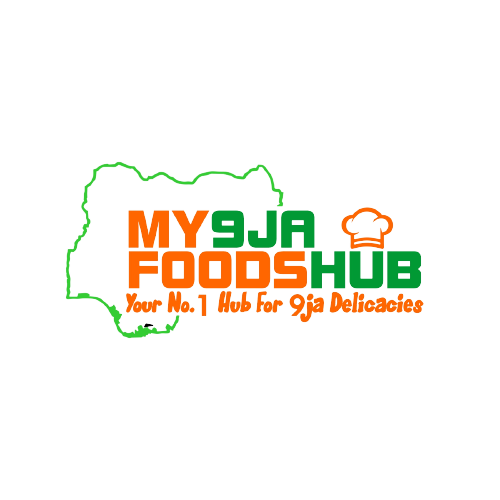October 1st, 1960, marked a significant milestone in Nigeria’s history as the country gained independence from British colonial rule. Since then, October 1st has been celebrated as Nigeria’s Independence Day, a day to reflect on the nation’s progress, cultural heritage, and rich traditions. As with any celebration, food plays a vital role in bringing people together and commemorating this special day. In this article, we will take a culinary journey through the best foods to be eaten on Nigerian Independence Day, showcasing the country’s diverse and flavorful cuisine.
Introduction to Nigerian Cuisine
Nigerian cuisine is a fusion of various cultures, influenced by the country’s geographical location, history, and ethnic diversity. With over 250 ethnic groups, Nigerian food is a reflection of the nation’s rich cultural heritage, featuring a wide range of spices, herbs, and ingredients. From the spicy dishes of the Hausa people in the north to the seafood-based meals of the Igbo people in the east, and from the bean-based dishes of the Yoruba people in the west to the savory meals of the Efik people in the south, Nigerian cuisine has something to offer for every palate.
Traditional Nigerian Dishes
1. Jollof Rice: This one-pot dish is a staple in Nigerian cuisine, made with rice, tomatoes, onions, peppers, and spices. Jollof Rice is often served at parties and celebrations, and its flavor and aroma evoke feelings of nostalgia and patriotism.
2. Suya: This popular street food is made from thin slices of meat (usually beef or chicken) marinated in a mixture of spices, peanut sauce, and other ingredients, then grilled over an open flame. Suya is a classic Nigerian snack that is often served at social gatherings and celebrations.
3. Egusi Soup: This hearty soup is made from ground melon seeds and is often served with a side of fufu (a starchy dough made from cassava flour or plantains). Egusi soup is a staple in Nigerian cuisine and is often served at special occasions.
4. Akara: These fried bean cakes are made from mashed beans and are often served as a snack or side dish. Akara is a popular breakfast food in Nigeria and is often served with a sprinkle of sugar or a side of pap (a fermented corn porridge).
5. Moi Moi: This steamed bean pudding is made from black-eyed peas and is often served as a side dish or snack. Moi moi is a nutritious and delicious option that is often served at Nigerian celebrations.
Regional Specialties
1. Hausa Cuisine: The Hausa people are known for their rich and flavorful dishes, made with a blend of spices, herbs, and ingredients. Some popular Hausa dishes include Tuwo Shinkafa (mashed rice), Miyan Koubewa (a spicy stew made with meat and vegetables), and Kunu (a fermented millet drink).
2. Igbo Cuisine: The Igbo people are known for their love of seafood, and their cuisine features a wide range of seafood-based dishes. Some popular Igbo dishes include Okra soup, Egusi soup, and Ofe nsala (a spicy soup made with bitter leaves and meat or fish).
3. Yoruba Cuisine: The Yoruba people are known for their rich and flavorful dishes, made with a blend of spices, herbs, and ingredients. Some popular Yoruba dishes include Amala (a thick, starchy paste made from yams or plantains), Ewedu (a leafy stew made with bitter leaves and meat or fish), and Egusi Ijebu (a thick, spicy stew made with ground melon seeds and meat or fish).
4. Efik Cuisine: The Efik people are known for their love of savory dishes, made with a blend of spices, herbs, and ingredients. Some popular Efik dishes include Edikang ikong (a thick, spicy stew made with vegetables and meat or fish), Afang soup (a leafy stew made with bitter leaves and meat or fish), and Abacha (a spicy stew made with fermented cassava leaves).
Desserts and Snacks
1. Puff-Puff: These sweet, fluffy doughnuts are a popular Nigerian snack, often coated in sugar or honey. Puff-puff is a classic Nigerian dessert that is often served at parties and celebrations.
2. Kokoro: These fried dough sticks are a popular Nigerian snack, often sprinkled with sugar or honey. Kokoro is a crispy and delicious treat that is often served at social gatherings.
3. Fruit Salad: A fresh fruit salad made with a variety of fruits such as pineapple, mango, banana, and orange is a light and refreshing dessert option.
4. Plantain Chips: Thinly sliced plantains fried until crispy make a delicious snack that is often served at Nigerian gatherings.
Beverages
1. Palm Wine: A traditional Nigerian drink made from the sap of palm trees, palm wine is a popular beverage that is often served at social gatherings.
2. Kunu: A fermented millet drink, kunu is a popular beverage in Nigeria that is often served at celebrations and parties.
3. Fura: A traditional Nigerian drink made from millet flour and water, fura is a popular beverage that is often served at social gatherings.
4. Mango Juice: A refreshing and sweet drink made from pureed mango, mango juice is a popular beverage that is often served at Nigerian celebrations.
READ MORE: Elevating Nigerian Classics: Coconut Rice and Moi Moi
Nigerian Independence Day is a celebration of the country’s rich cultural heritage, diversity, and traditions. Food plays a vital role in bringing people together and commemorating this special day. From traditional dishes to regional specialties, desserts, snacks, and beverages, Nigerian cuisine has something to offer for every palate. Whether you’re celebrating in Nigeria or abroad, incorporating these dishes into your Independence Day celebration will add a touch of authenticity and cultural significance to your festivities.






